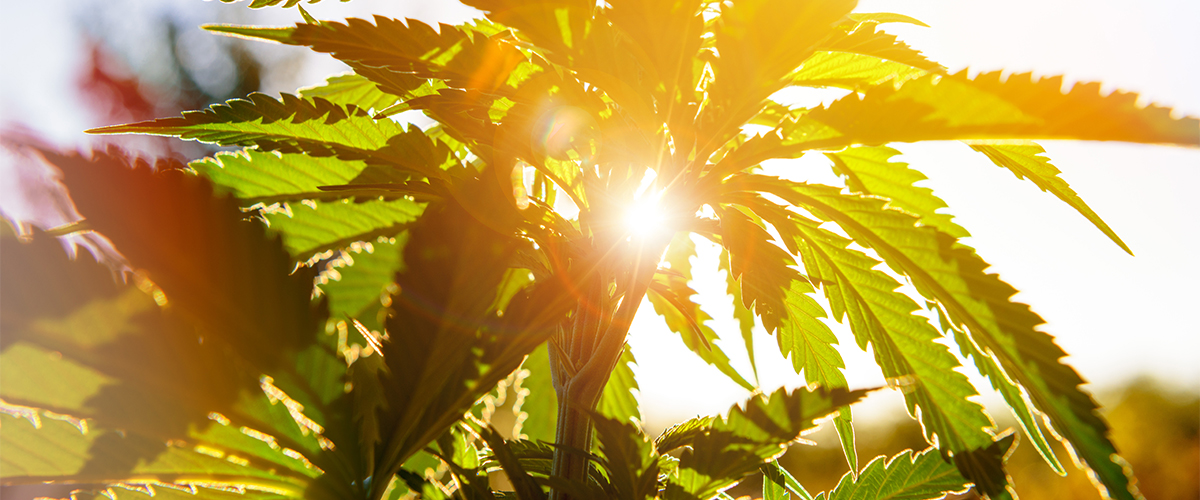The bill proposes legalizing hemp by removing the sustainable crop from the Controlled Substances Act, and would establish it as an agriculture commodity.
Senate Majority Leader Mitch McConnell, R-Kentucky, last week introduced a bill to legalize the cultivation of industrial hemp in the United States. McConnell’s bill, The Hemp Farming Act of 2018 (S. 2667) would remove industrial hemp from the Controlled Substances Act and federally legalize the commercial cultivation of the sustainable crop.
 Hemp, thought to be one of the earliest domesticated crops, has been grown for centuries for its seeds and fibers, which can be used to make all kinds of products – cannabidiol (CBD) hemp oil supplements, food, paper, textiles, building materials, biofuel, and more.
Hemp, thought to be one of the earliest domesticated crops, has been grown for centuries for its seeds and fibers, which can be used to make all kinds of products – cannabidiol (CBD) hemp oil supplements, food, paper, textiles, building materials, biofuel, and more.
More than 30 states have been growing hemp for research purposes through a provision included in the 2014 Farm Bill, signed into law by Barack Obama. It’s already legal to sell hemp products, but full commercial hemp farming has been illegal for decades so manufacturers in most cases import the raw materials from other countries.
Despite the nation’s hemp market being worth an estimated $688 million, domestic farmers face several barriers to growing hemp due to federal prohibition.
The new bill would remove restrictions to farmers, putting the U.S. Department of Agriculture and state agencies in charge of regulating the hemp industry.
“By legalizing hemp and empowering states to conduct their own oversight plans, we can give the hemp industry the tools necessary to create jobs and new opportunities for farmers and manufacturers around the country,” McConnell said in a statement.
McConnell had announced his intention to introduce the legislation last month. In a press conference with Kentucky Agriculture Commissioner Ryan Quarles, McConnell described hemp as previously “[playing] a foundational role in Kentucky’s agricultural heritage,” and asserted his belief that the versatile crop could “be an important part of [Kentucky’s] future.”
Sens. Rand Paul, R-Kentucky, Jeff Merkley, D-Oregon, and Ron Wyden, D-Oregon are cosponsors of the bill. A companion bill has also been introduced in the House.
Closer Look at The Hemp Farming Act of 2018
McConnell’s hemp legislation would remove hemp plants containing less than 0.3 percent tetrahydrocannabinol (THC) from the list of Controlled Substances. All of the plant’s derivatives, extracts, and seeds that remain below the THC requirement would also be de-scheduled.
It’s time the federal gov changes the way it looks at #hemp, which is why Senator @RonWyden and I, along with @SenJeffMerkley, are introducing legislation that will modernize federal law in this area & empower American farmers to explore this promising new market.
— Leader McConnell (@SenateMajLdr) April 12, 2018
The Hemp Farming Act would also normalize the finance, banking, insurance, and other business proceedings for hemp farmers and businesses operating within the hemp industry. Under the National Agricultural Research, Extension, and Teaching Policy Act of 1977, hemp research would be eligible for competitive grant funding.
Because hemp would be restored as a U.S. agricultural commodity, hemp farmers would have public water rights ensured. Additionally, protections for interstate commerce of U.S. grown and manufactured hemp products would be established.
Reactions Among Those in the Hemp Industry
Reactions to the legislation among hemp advocates and industry leaders have been overtly positive.
Eric Steenstra, president of Vote Hemp, said in a statement that the bill “will finally remove the federal roadblocks holding back the industry and help to create jobs in farming and manufacturing.”
“The Hemp Farming Act of 2018 is landmark legislation that will be remembered as the key element which finally allowed the hemp industry to flourish in the U.S.,” he added.
Colleen Keahey Lanier, executive director of Hemp Industries Association, said, “The removal of industrial hemp from the Controlled Substances Act is critical to the advancement of hundreds of farmers and stakeholders that the HIA represents.”
“We expect research and American innovation to springboard under this proposed full legalization,” said Joy Beckerman, Hemp Industries Association president.
Medical Marijuana, Inc. CEO Dr. Stuart Titus applauded the legislation and its impact on new CBD market opportunities in a statement, saying, “This bill has such widespread bipartisan support that it is not only being considered to be an amendment to the Farm Bill of 2018, but also a unique bill on its own.”
“It will take a lot of hard work to make hemp federally legal in the U.S., but we’re happy to have someone of such power and influence working to help make this possible,” he added.
 Learn More About Hemp
Learn More About Hemp
Hemp has a long history in America. You can learn more about hemp and its array of benefits, and keep up with the latest developments in the hemp industry, by visiting our news page.






